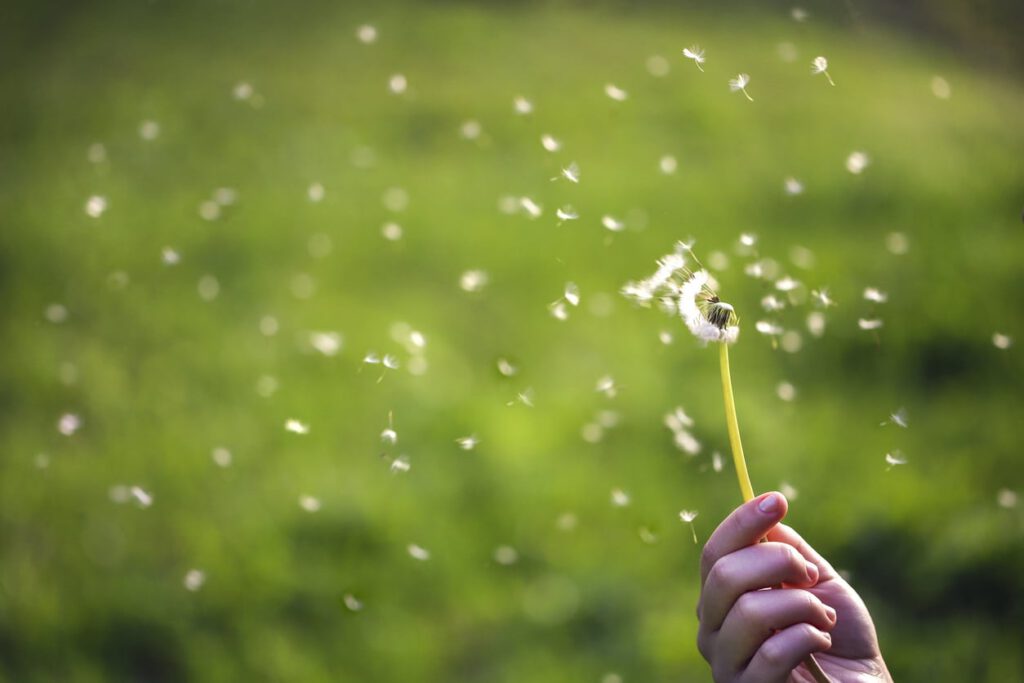In the largest study of its kind to date, scientists have found new genetic associations for hay fever the most common type of allergy.
The researchers uncovered 41 genetic associations with hay fever, according to the study published in the journal Nature Genetics. Also known as allergic rhinitis, hay fever affects more than 400 million people worldwide and it is a seasonal condition triggered by environmental allergens like pollens that leads to sinus inflammation.
“This is the largest genetic study ever conducted into hay fever,” said Klaus Bønnelykke, one of the lead authors of the study and a researcher at the University of Copenhagen.

Unrecognizable Caucasian woman holding dandelion while seeds flying.
Led by the team in Denmark, the study relied on data from 23andMe customers who consented to participate in research, as well as data from individuals who participated in more than 30 other studies around the world.
The researchers took a two-step process — the first stage was a discovery stage and the second stage used a different set of data to replicate the findings from the first stage. Data from more than 900,000 individuals was used, and included both individuals with hay fever and those who do not have the condition.
The researchers found that many of the genetic variants associated with hay fever are in or near genes that regulate the immune response, some of the variants were known to be associated with the condition, but 20 are new.
“The risk genes we have mapped can help us understand what causes hay fever,” said Bønnelykke . “And in the longer term, this will be helpful when it comes to developing drugs and better treatments for the allergy.”
But the study does not explain the rapid increase in the number of cases of hay fever worldwide, which has been described as reaching epidemic proportions. Lifestyle or environmental exposures are more likely to explain that increase, according to the researchers.



